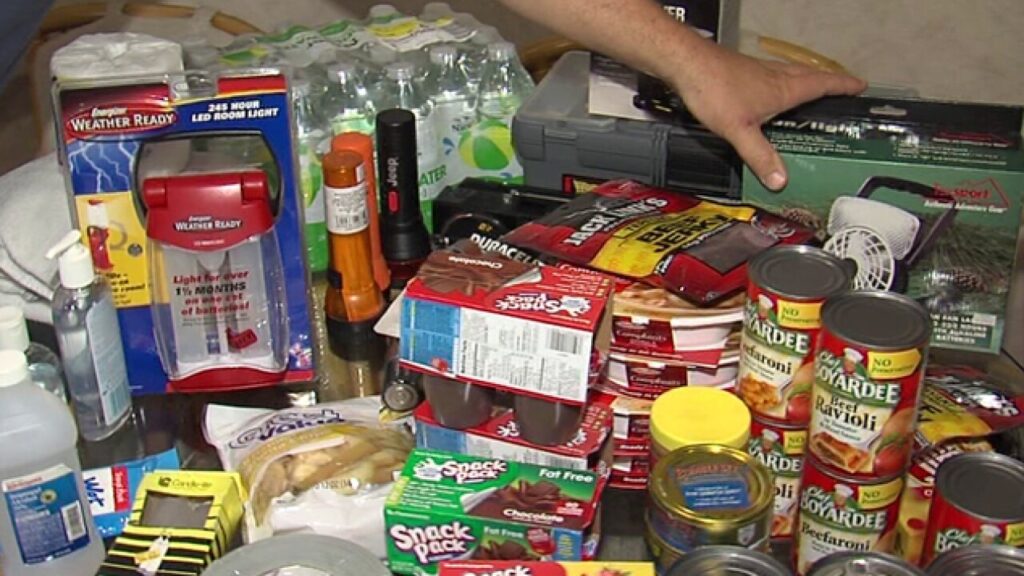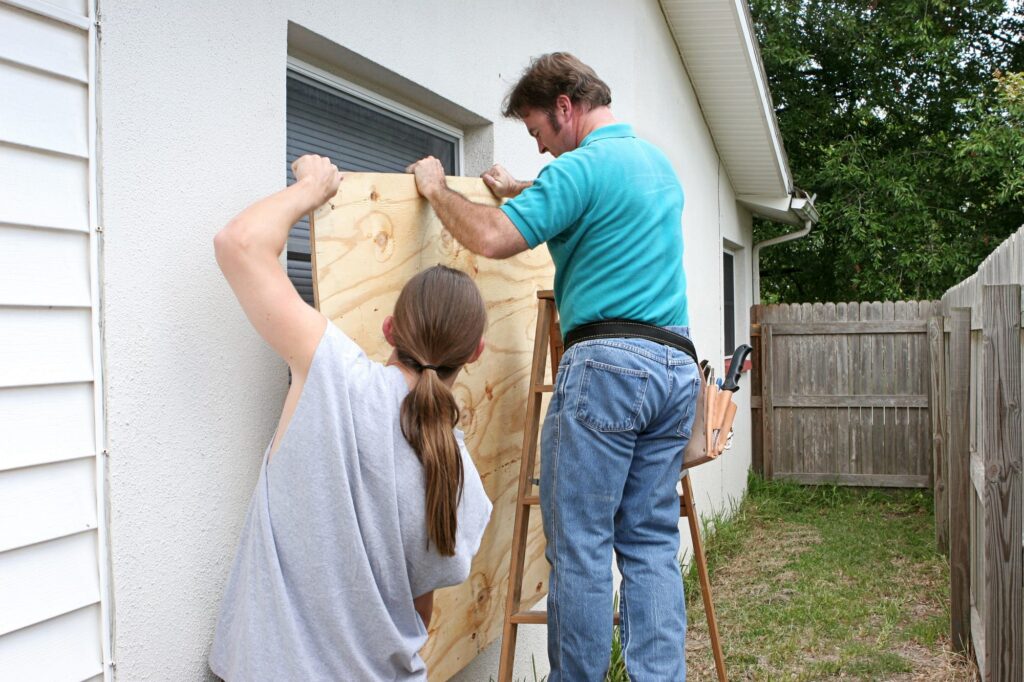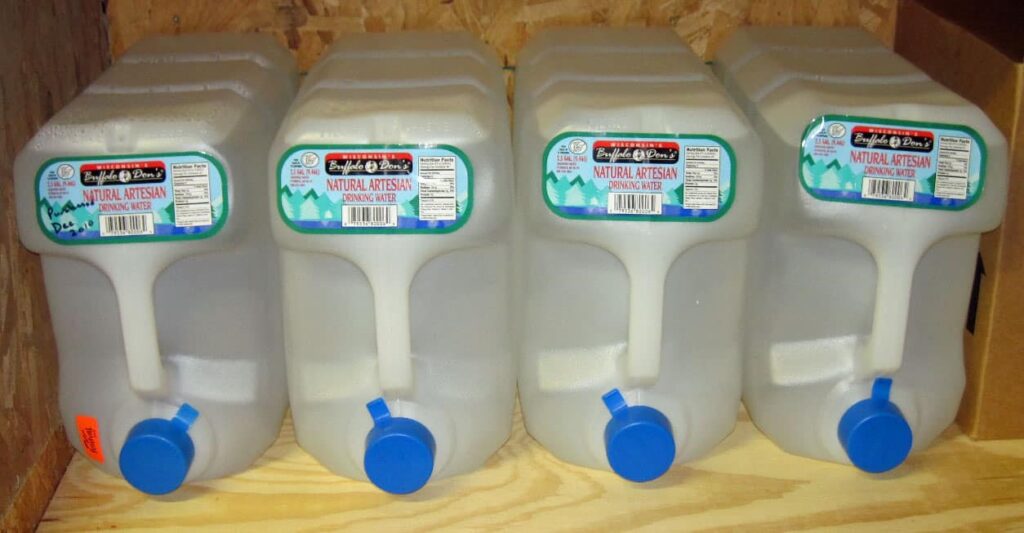As an experienced hurricane survivor, I can tell you that the key to staying safe is preparation. In order to get through another hurricane season with minimal stress, hunkering down early is essential.
If you live in a hurricane-prone area or think you might someday as well, here’s what you need to know about hunkering down for the coming storm season.

Know the difference between a watch and a warning
A hurricane watch is issued 48 hours before the expected first arrival of tropical storm-force winds. Tropical storm-force winds include hurricane-force winds of 39 mph or greater, and tropical storm-force winds extend outward up to 39 miles from a storm’s center.
A hurricane warning is issued when tropical weather features are expected in 36 hours or less. A hurricane warning is issued when the National Hurricane Center (NHC) predicts that tropical storm-force winds will begin in the next 36 hours in a specified coastal area. Tropical storm-force winds extend outward up to 48 miles from the storm’s center.

Get your essentials in order
During the hurricane season, it’s a good idea to make sure you have everything you and your family might need if a storm forces you to stay put.
Here’s a checklist of essential supplies and equipment to have on hand in case of a storm:
- Food: These items are essential to have on hand during a storm. Store enough non-perishable food to last you for at least three days including canned goods, dried beans and grains, nuts, and dried fruits.
- Water: Your family needs at least one gallon of water per person per day. If a storm is expected, make sure you have enough water, stored in clean containers, to last the duration of the storm.
- Candles: Keep candles in holders and out of reach of children and pets.
- Generators: Keep either fuel or propane on hand for your generator.
- Tools: Keep a wrench, screwdrivers, and other basic tools on hand for emergencies.
- First aid kit: This should include bandages, antibiotic ointment, gauze, and any other basic medical supplies you might need in the event of an injury.
- Extra cash: This is just in case ATMs and credit card machines aren’t working.
- Get your car ready: Fill up your car’s gas tank, especially if you’re in an area where hurricanes are common.

What to do before a hurricane strikes
Once a storm watch is issued, it’s time to start your hurricane preparations.
Here are a few steps to take to get your home ready for a storm:
- Turn off your water and power: If your area is prone to storm damage, turn off your water and power before a storm hits. This will minimize the chance of flooding and help protect your home.
- Prepare your property: Move outdoor furniture and other items into the garage or interior rooms of your home. Nail shutters to your windows. Make sure all loose items, like hanging plants or solar panels, are secured as well.
- Fill your car’s gas tank: Gas pumps will be closed when a storm hits. Make sure you have enough gas to get where you need to go.
- Stock up on supplies: Make sure you have plenty of food and water on hand. You should also have batteries, flashlights, and other emergency supplies on hand.
Get your battery-powered essentials ready
A few essential items powered by batteries will come in handy during a power outage.
Here are a few items you might want to invest in:
- Portable charger: If your phone is a smart device, make sure it has a portable charger. This will help you stay connected.
- Flashlight: Stay safe and visible when walking in the dark.
- Portable lantern: This is a great source of light and a portable charger, as well.
- Weather radio: Tune in to local alerts and information related to the storm. This will help you stay informed and safe.
- Battery-powered fan: Can keep you cool during a power outage.
- First aid kit: Help may not always arrive immediately during and after a major storm.

Find the safest place in your home
There are different areas in your home where you can seek shelter during a hurricane. Depending on the severity of the storm, these areas can be safer than others, especially if you have little ones or pets in the house.
The safest place in your home will depend on which area is least likely to experience damage. If you live in a coastal area, don’t forget to prepare for a storm surge. You can check your risk for a storm surge at Ready.gov/storm-surge.
If you do not have a basement (like most Floridians), your safe room could be an interior bathroom or closet. Basically a space without any windows or other exterior openings.

Organize important documents and supplies
As you prepare for a hurricane, don’t forget to organize important documents and supplies in case of damage to your home.
Important documents to keep in a safe place include:
- Insurance policies
- Your will and living will
- Important phone numbers
- Important email addresses
- Bank account numbers and login information

Have a backup supply of food and water
A good rule of thumb is to have a supply of food and water that will last you and your family three days. This will give you enough time to ride out the storm and keep everyone safe and healthy.
Make sure you have enough water to last you, your family, and all pets for three days. Stay hydrated by drinking water during a hurricane, especially if you are also dealing with high winds. Also have a backup water plan in case your bottled water runs out.
When it comes to food, the general rule is to have enough nonperishable food items to last you and your family three days. During a hurricane, it is essential to stay hydrated and eat a balanced diet rich in protein and other nutrients to stay healthy.
In Conclusion
A hurricane can seem like an impossible situation to manage, but it can be managed with careful preparation. With the right mindset and a few key supplies and precautions, you can ride out even the worst storms. If you live in a hurricane-prone area, it is essential to prepare for the storm season, especially with so many storms forecast for this year. With the right mindset and a few key supplies and precautions, you can ride out even the worst storms.
Keep in mind that we may receive commissions when you click our links and make purchases. However, this does not impact our reviews and comparisons. We try our best to keep things fair and balanced, in order to help you make the best choice for you.

